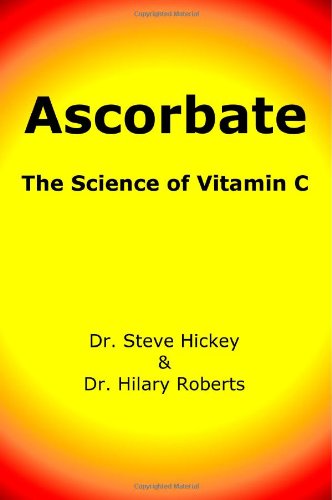Ascorbate: The Science of Vitamin C pdf free
Par davis lois le lundi, mai 16 2016, 13:15 - Lien permanent
Ascorbate: The Science of Vitamin C by Steve Hickey Hilary Roberts


Download eBook
Ascorbate: The Science of Vitamin C Steve Hickey Hilary Roberts ebook
Publisher:
Format: pdf
Page: 264
ISBN: 1411607244, 9781411607248
Vitamin C (L-ascorbate) is a very powerful nutrient and the premier water-soluble antioxidant. Indeed, NF-κB transcribes pro-apoptotic genes such as p53. Most experimental and clinical research uses ascorbic acid or sodium ascorbate. Fewer people know that Pauling's work, influenced by Dr. **It was actually a talk, “Intravenous Ascorbate and Standard Therapies in Oncology: The state of the science, application and practice of intravenous ascorbate with standard oncologic therapies” from last week's OncANP conference, by Paul Anderson, ND, that got me fired up to write this post. In accordance with other scientific reports and our present data suggest that activation of NF-κB is linked to cell death signaling in Jurkat and K562 cells [16]. Vitamin C or L-ascorbic acid, or simply ascorbate (the anion of ascorbic acid), is an essential nutrient for humans and certain other animal species. I don't know if I can post this here or not, but please check out this book, Ascorbate: The Science of Vitamin C. The use of vitamin C in cancer prevention and treatment is another one of those controversial topics in oncology that I feel compelled to write about. Steve Hickey and Hilary Roberts, University of Manchester graduates in pharmacology in England. This is not so, says a new book, Ascorbate: The Science of Vitamin C,* written by Drs. Vitamin C (L-ascorbic acid) is available in many forms, but there is little scientific evidence that any one form is better absorbed or more effective than another. The authors provide examples of scientists and doctors who have used vitamin C for treatment of heart disease, cancer, AIDS, viral diseases, and polio. Go to Amazon and check out all of the reviews. I spoke to Dr Steve Hickey who (with Dr Hilary Roberts) has just published a new book called “Ascorbate: The Science of Vitamin C”. Vitamin C has been advocated for many other therapeutic uses. Irwin Stone, who argued that nearly all human beings were suffering from vitamin C deficiencies and that everyone requires 50 or 100 or even 200 times as much vitamin C as there soon was no doubt that when dying cancer patients were given large doses of vitamin C they felt much betterand it seemed certain that the ascorbate-treated patients were living much longer than would have been expected. Accordingly, the use of vitamin K3 (VK3, also known as menadione [3]) and vitamin C (VC, also known as sodium ascorbate [4]) alone or in combination (VK3: VC [5]) is highly promising in cancer treatment. Yet, the precise pathway(s) by which VK3 and/or VC induce .. That's a long time for a thought process to be fermenting in the minds of scientists. Vitamin C There is continuing debate within the scientific community over the best dose schedule (the amount and frequency of intake) of vitamin C for maintaining optimal health in humans.
Color Atlas of Pathophysiology ebook
Drug Information: A Guide for Pharmacists ebook